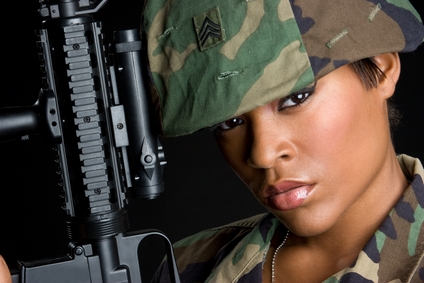Military logistics is the benchmark we should all be shooting for. Military folks excel in logistics because they focus on five areas below and we would all be wise to do the same.
Core Values / Culture
Regardless of which branch of the military or specific job responsibilities, the military instills core values into every soldier. These core values guide every action and every decision. I received tons of feedback from the experts
and most agreed that core values were the most important thing for any soldier including the logistics guys. The values listed the most were: loyalty, duty, respect, selfless service, honor, integrity, courage and team work. What are the core values that guide your team?
Mission
In the civilian world, logistics is important, but in the military it is the difference between life and death. There are three logistics guys supporting every front line warrior and getting the right stuff to the right people at the right time means everything. The military logistics teams are soldiers first and they will do whatever it takes to support the mission. In the civilian world, the logistics group sometimes gets disconnected from the mission of sales or management. Does your logistics team know and understand the mission? Do they feel ownership for the mission’s success or failure? Have you given them the resources and training to support the mission?
Process, Process, Process
To manage the huge and difficult mission of supplying warriors who are constantly moving with supplies while under attack, the military folks rely heavily on process. The military has developed processes and standards that enable them to be timely, responsive, adaptable, and precise. They have processes for planning, ordering, package design, loading, stacking, unloading, product placement, security and safety. A sloppy pack job is inconvenient for us civilians, but for the military it can be deadly. Are your logistics processes documented? Even if you don’t have lives at stake, good processes save money and improve service quality.
Documentation
To move supplies to the front in a hurry, documentation is key. Cargo must be labeled correctly, locations which are often changing need to be precise, and drivers need to understand what they are hauling and when it needs to be there. Poor documentation slows everything down and potentially means the wrong stuff is shipped. Is your documentation accurate? Does your logistics team ever struggle with labels, packing instructions or shipping locations?
Communication Technology
The dynamic nature of war requires top notch communication. Military logistics folks use the latest communication technology to keep the freight and conversation moving. Technology of all sorts (GPS tracking systems, mobile
apps, RFID labels, integrated ERP systems, barcoding etc.) has enabled the military logistician to become much more effective and efficient. The military also has to manage increasingly complex supply chains and they connect to them via web based IT solutions. Does your team have the technology needed to be effective and efficient.
Special thanks to the military veterans for their sacrifice and their contributions to the field of logistics.
Additional reading on military logistics: Institute for Defense & Government Advancement (IDGA)

